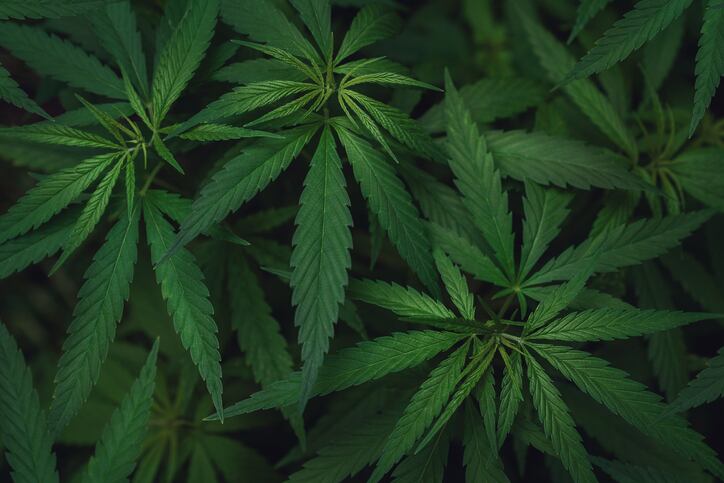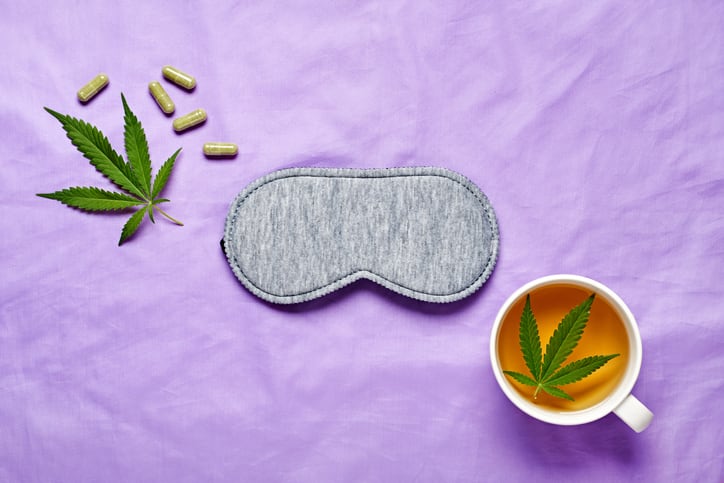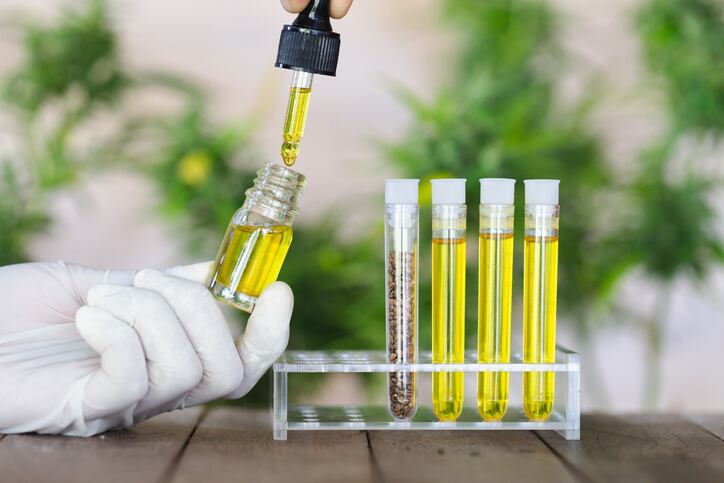The commentary, which was published yesterday, raises a host of concerns about delta-8 THC, which is an intoxicating cannabinoid fraction of Cannabis sativa. (Exactly how intoxicating this molecule is is a matter of debate.) The commentary notes the primary reason formulators are bringing the products to market is a perceived loophole in the regulations surrounding CBD and full spectrum hemp extracts.
Only delta-9 THC called out specifically in law
When the 2018 Farm Bill was signed into law it removed Cannabis sativa from the Drug Enforcement Administration’s Schedule One list of controlled substances. Delta-9 THC (the primary intoxicating fraction of the plant) remained on the list, however.
To date it has not been possible from a crop breeding standpoint to develop a cultivar of the plant that is devoid of delta-9 THC. The threshold for ‘compliant’ industrial hemp raw material is less than 0.3% delta-9 THC by dry weight.
But because this molecule has been called out specifically — and no other — in federal regulations it has opened the door for the isolation and development of other cannabinoids.
CBD (cannabidiol) was the first to that party, mostly because there is a growing amount of research backing its effects and the cannabinoid is relatively abundant in the parent plant. But research into the plant continues to accumulate at an every rising rate.
Little research on Cannabis sativa was done in the United States during the years of federal prohibition, mostly because the legal hurdles made it cumbersome and costly. And the only legally available research material was cannabis grown at the University of Mississippi that was said to have a low concentration of cannabinoids compared to strains being developed by plant breeders around the world.
Minor cannabinoids proliferate with little science, quality info
Now additional fractions are coming to the fore including CBG (cannabigerol), CBN (cannabinol) and others. The issue, USP says, is that with delta-8 THC (and some of these other minor cannabinoids) product development is forging ahead of the science. There is so little delta-8 THC in the plant naturally that even among heavy recreational marijuana users overall exposure was low. For consumers of delta-8 THC finished products that’s no longer true. Those consumers have in effect become the guinea pigs.
“These products may be within the limit for the maximum amount of delta-9 THC allowed in hemp, but they could present risks to public health due to the intoxicating effects of delta-8 THC at high levels of exposure and potential product quality issues,” the commentary states.
Synthetic substances tread on unmapped ground
In addition, the paper notes that most if not all of what’s on the market has been synthetically produced.
“Products labeled as containing delta-8 THC have a high probability of being synthetically derived, because it is not generally thought to be economically feasible to extract naturally occurring delta-8 THC, given the low concentrations present in cannabis and hemp,” the commentary states.
This is most commonly done by chemically altering the CBD molecule. The manufacturing quality of these operations is unknown, USP said. The commentary said this process involves strong acids and catalysts and such harsh reaction conditions can give rise to unwanted and/or uncharacterized by-products and impurities.
“The fact of the matter is that little is known about the products labeled as containing delta 8, so much so that the FDA and CDC have both released advisories about the products. Depending on how the products are produced, unknown impurities may be introduced, including minor and synthetic cannabinoid compounds that are not naturally occurring in cannabis," said Dr Ikhlas Khan, PhD, chairman of USP's Expert Panel on cannabis. Dr Khan also heads the National Center for Natural Products Research at the University of Mississippi.
Call for validated methods, more science
The USP commentary puts forward the following action points:
- Clinical research into the investigation of minor cannabinoids, such as delta-8-THC.
- That products labeled as delta-8 THC should be tested for synthetic impurities and the levels of impurities should be controlled until they have been demonstrated as safe.
- The need for systematic clinical investigations supported by quality research materials and methods.
- Recognition of emerging concerns from novel substances. The use of minor cannabinoids and their compounds should be subjected to systematic preclinical and clinical investigations.
Market flooded with unvalidated products
"Products containing delta-8 can be found in gas stations, convenience stores, and are readily available over the internet without any warnings or safeguards, providing consumers with a false sense of security that these products are safe for consumption," notes David Vaillencourt, CEO of The GMP Collective and ASTM International member.
"Synthetically derived cannabinoids are not necessarily inherently unsafe if they are quality controlled and shown to be safe. By using public quality standards, we can help in controlling the quality of the products and set appropriate limits for impurities,” said Dr Nandakumara Sarma, Director of Dietary Supplements and Herbal Medicines for USP.




